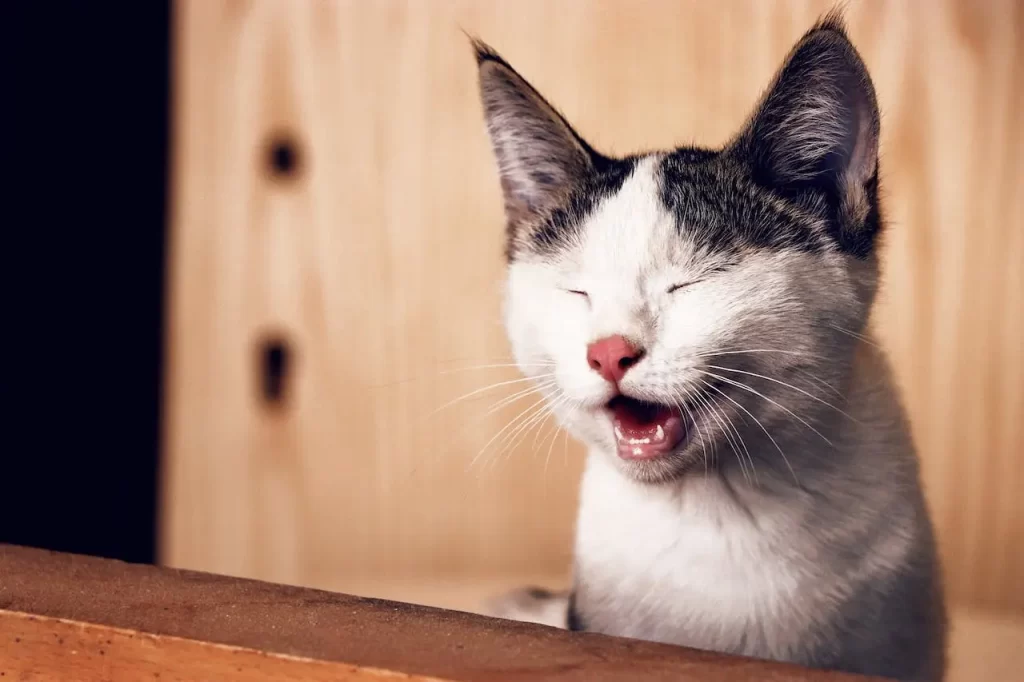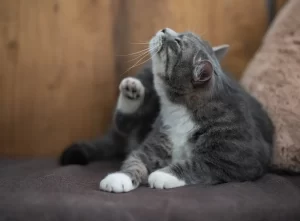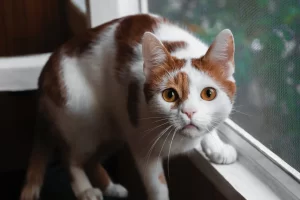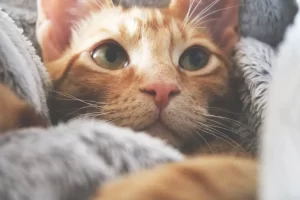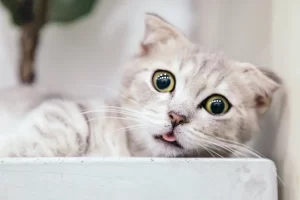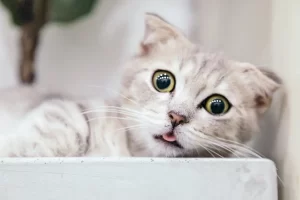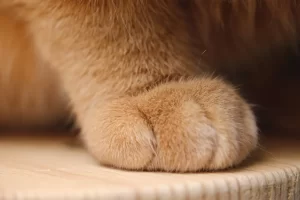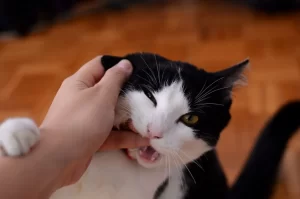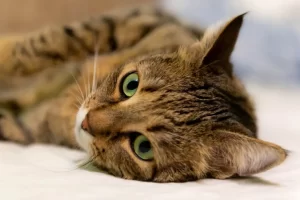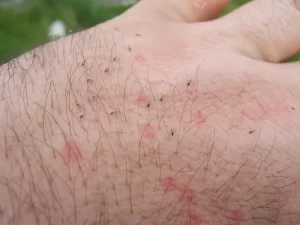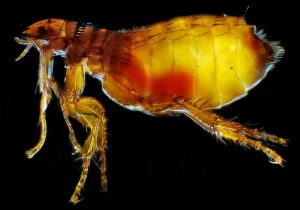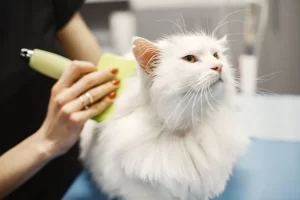Cat owners often become concerned when their feline companions start vomiting white foam. While occasional vomiting is normal for cats, chronic or severe vomiting can be a sign of an underlying issue. However, in some cases, mild vomiting of white foam can be treated with home remedies. In this article, we’ll explore 15 effective home remedies for cat vomiting white foam, along with detailed instructions to help pet owners alleviate their cat’s discomfort.
Table of Contents
ToggleFasting for 12-24 Hours
If your cat has vomited white foam, a short fasting period can help settle their stomach. Withhold food for 12-24 hours to give their gastrointestinal tract a chance to rest and recover. Ensure your cat has access to clean, fresh water during this time.
Gradual Diet Introduction
After the fasting period, reintroduce a bland diet, such as boiled chicken or rice, in small portions. This can help soothe your cat’s stomach and prevent further vomiting. Gradually transition back to their regular diet over a few days.
Ginger Tea
Ginger has anti-nausea properties that can benefit cats. Make a weak ginger tea by steeping fresh ginger in hot water, letting it cool, and then offering small amounts to your cat. Ensure it’s at room temperature and not too spicy.
Slippery Elm Bark
Slippery elm bark is known for its soothing effects on the digestive system. Mix a small amount of slippery elm bark powder with water to create a paste and administer it to your cat. Follow the dosage instructions on the product label.
Bland Diet with Pumpkin
Pumpkin can be added to your cat’s bland diet to aid digestion and reduce vomiting. Mix a small amount of pureed, canned pumpkin with their food. Start with just a teaspoon and adjust as needed.
Probiotics
Probiotics can help restore the balance of healthy gut bacteria in your cat’s digestive system. When considering probiotics for cats experiencing issues like vomiting white foam, it’s essential to consult your veterinarian for personalized advice. Some common probiotic strains used for feline digestive health include Lactobacillus acidophilus, Bifidobacterium animalis, and Saccharomyces boulardii. These strains can help maintain a balanced gut flora, promoting digestive well-being. Several cat-specific probiotic products are available, such as FortiFlora, Proviable, VetriScience Vetri Mega Probiotic, and Nutramax Cosequin Probiotics, which are formulated to support gastrointestinal health. These supplements come in various forms, making it easier to cater to your cat’s preferences.
Aloe Vera Juice
Aloe vera juice can have a soothing effect on your cat’s stomach. Administer a small amount of diluted aloe vera juice. Make sure it is a cat-safe version, as some aloe vera products may be toxic to pets.
Over-the-Counter Antacids
Some antacids formulated for cats can be helpful in reducing stomach acidity and vomiting. Common over-the-counter antacids that can be used for cats experiencing vomiting white foam include famotidine (Pepcid AC), ranitidine (Zantac), and omeprazole (Prilosec). These antacids are known to reduce stomach acid production and can help alleviate nausea in cats. However, it’s crucial to emphasize that these medications should only be administered to your cat under the guidance and recommendation of a veterinarian. The dosages and formulations for cats may differ from those designed for humans, making professional advice essential to ensure the safety and effectiveness of treatment. Self-medicating your cat can be risky, so always consult with a veterinarian when considering the use of over-the-counter antacids or any other medications for your feline companion.
Small, Frequent Meals
Feeding your cat smaller meals more frequently can help prevent vomiting. This approach reduces the strain on their stomach and minimizes the chances of white foam vomiting.
Hydration
Ensure your cat remains adequately hydrated, as dehydration can exacerbate vomiting. Provide access to clean water and encourage your cat to drink, especially after fasting.
Elevated Food Bowls
Feeding your cat from an elevated food bowl can help reduce the risk of swallowing excessive air while eating, which can lead to vomiting. Elevate their food and water bowls to a comfortable level.
Stress Management
Stress can contribute to vomiting in cats. Create a calm and stress-free environment for your pet to help alleviate this issue. Offer toys, cozy hiding spots, and affection.
Hairball Control
Regular grooming and using hairball prevention products can reduce the risk of vomiting, especially if hairballs are the cause.
Monitor Allergies
Some cats may have food allergies that lead to vomiting. Consult with your veterinarian to identify potential food sensitivities and adjust their diet accordingly.
While occasional white foam vomiting in cats may be normal, chronic or severe episodes should not be ignored. These home remedies can help alleviate mild cases of cat vomiting white foam. However, it’s essential to monitor your cat’s condition and consult a veterinarian if the issue persists or worsens, as it may indicate a more serious underlying problem. Always prioritize your cat’s well-being and seek professional advice when needed.

